wolfbrother9393
Emerson joined
Independent game designer and writer!

The videogame industry is currently becoming saturated with my least favorite paying method: micro-transactions. I have simply refused to buy a game that requires me to pay regularly to enjoy the game. One of the major reasons I purchased a PS3 over the Xbox 360 was because I don't want to pay for online access.
This post is just as much of a review for a specific game as much as it is praise for the way this game handles monetary transactions.
Battleforge, a title in EA's 'Play4Free' micro-transaction plan, was released in 2009 but has a evolved and addressed many mistakes since its original release and has become the best micro-transaction game of all time.

In Battleforge you purchase cards that serve as your in-game units in a way that can be best compared to Magic: The Gathering. Cards require monuments that you build in one of four types: Frost, Fire, Nature and Shadow and a certain amount of resources that Power Wells generate autonomously until they are emptied.
Those who enjoy a deep set of base building tools like those featured in Battle for Middle Earth II won't find anything of the sort here: in Battleforge the best defense is a good offense.

Micromanagement of troops and resources play a tremendous role in the outcome of the battle in-game but the greatest strategy lies in the deck building.
A recent feature added into Battleforge is the ability to earn one BF (Battleforge) point by playing a game for at least fifteen minutes, redeemable once per day. While most booster packs are close to 300 BF points, you can now purchase 1 random card with that 1 point so you could potentially have a completely new deck if you played for fifteen minutes each day for twenty days.
On top of all of that it's just a good, solid rts game. In fact, it's my favorite real-time-strategy game of all time.
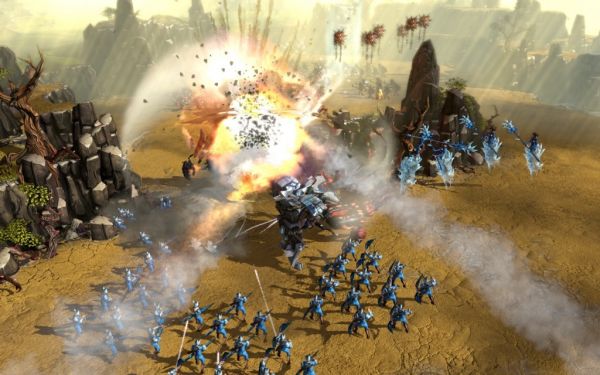
With several different campaigns for single-player, two-player and four-player plus randomly generated single-player and co-op maps there's no lack of content and no reason you shouldn't check this excellent game out right now.
-E
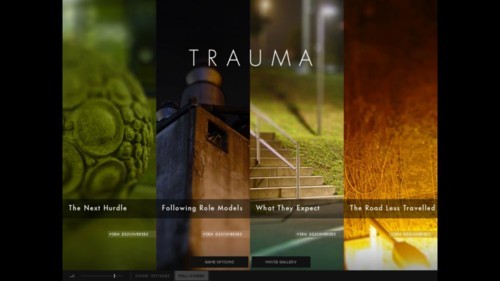
I didn't really know what to expect when I started playing Krystian Majewski's Trauma. What I found was a unique blend of point-and-click adventure puzzles and narration by "a young woman who survives a car accident".
After watching the opening cutscene I was presented with four vignettes, or "dreams". Each dream begins by stating what your objective is. For example "this is the dream where I am chasing a ghost" would hint that maybe you should be following the ghostly trail.
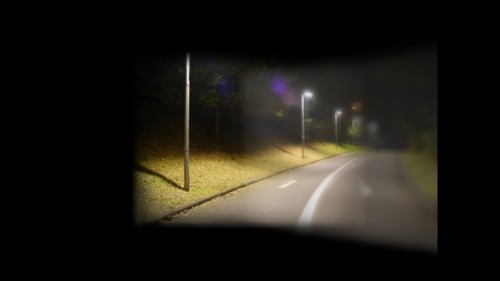
The interface is easy to navigate and the environment assembles itself like a bunch of photographs. When you hover your mouse over an area that you can move to you see a ghostly outline of where the next image will be.
Each dream introduces a specific mechanic, like using drains to slurp up whatever obstacle is in your way or lifting giant seeds(?). Reusing these mechanics I sometimes found myself finishing one of the four vignettes right as I started it so I went back and tried to find another way to finish it.

There seems to be one "right" way to finish each dream that will reward you with a short cutscene of the narrator conscious in the hospital and talking to her doctor.
Trauma does not challenge your skills as a puzzle solver and instead takes you on a journey. The puzzles are simple and straightforward. The real beauty in Trauma is the way it blends gameplay and narrative to create this industry's equivalent of an interactive poem. There is a real sense of discovery when you return to earlier vignettes and realize that mechanics you learned in later levels still apply there.

Majewski has created a work of art and I look forward to seeing what she contributes to this medium in the future.
-E
Also, don't forget to check out the official website and remember the game will be available for purchase on Steam later today!
For those of you who don't know, Kairo is a first-person puzzle game being developed by Richard Perrin. You can visit his website here and check out Kairo's website here.
I've been watching the development of Kairo ever since Perrin first posted information about it online so after I got my hands on the alpha build I burst with excitement.
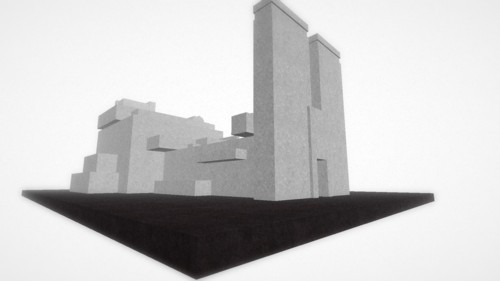
Kairo is exactly what I had hoped: this isn't a game that gives you objectives, super powers or rules.
You simply appear in the middle of nothingness and begin to explore.
The puzzles can be hard to figure out from time to time for exactly this reason but it's never impossible, and a helpful hint system can lead you in the right track if you have absolutely no idea what to do in the next room.
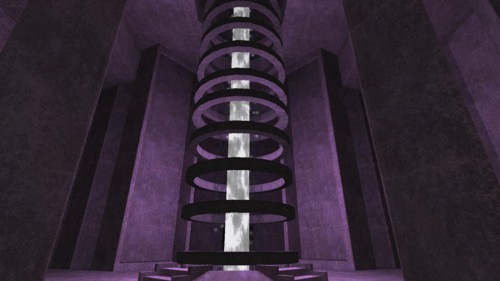
The alpha build I played was centered around a central hub. Five tar-like teleports send you to other parts of Kairo and contain their small loop of puzzles that bring you back around to the hub. As you solve puzzles the hub will be altered (for example the beam shooting upward between the rings).
You really do feel like you are bringing these machines back to life. There is a large, ominous mystery to where these monuments came from, who built them and what purpose it has which I assume will be answered in a vague, ambiguous fashion that Perrin tells the entire tale with.
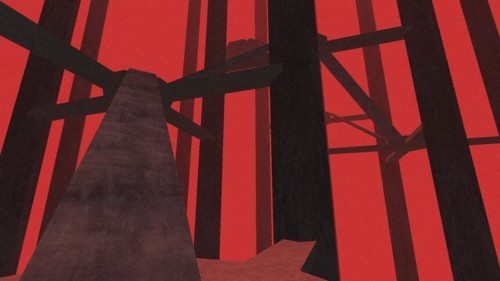
And that's just what makes Kairo so powerful. It tells a story without any dialogue or narrative -- the entire journey is narrated by emotion.
Every room has a unique feeling that is joined with the overall oppressive atmosphere.
To understand Perrin's design process before the game is released the best possible place to go, other than Perrin himself, would be to his two articles on IndieDB: The Kairo Process and Kairo: Puzzles and Obstacles.
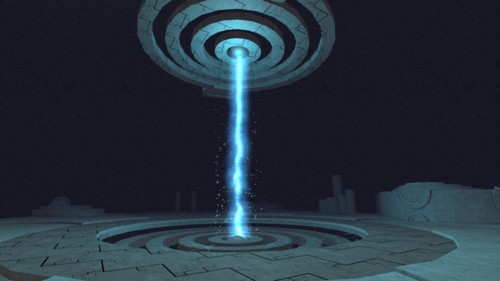
Kairo is without a doubt a fascinating, raw indie game that deserves your attention.
To try out the alpha now, head on over to the Kairo website and preorder or get it when it's released later this year!
-E
Now, I know I haven't finished the game yet but I can't hold it back any longer. I absolutely love this game and just have to tell you about it.
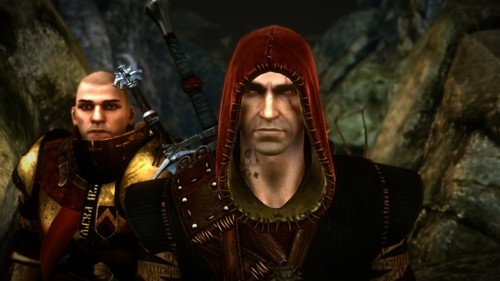
By now you already know that The Witcher 2 is a gorgeous game. All of the pictures I'll be posting are screenshots I took on my laptop. You can check out all of my screenshots here and I'll be updating them as I play through the game. You have been warned, there will be spoilers if you go there.
Because I haven't finished the game and don't know the whole story I'm going to focus on the mechanics that make it such a compelling game -- even though the story is reason enough.
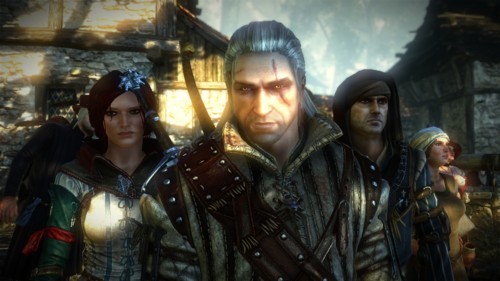
The Witcher 2 features a world with dynamic characters and an open-world style of exploration that is carried by a linear progression. It works very well and keeps the narrative at the front.
The whole game is organized by chapters. Within each chapter are boundaries that keep you within the specific environment. The first chapter restricts you to the small town of Flotsam, the outer camp Lobinden and a dense forest. Each has it's share of interesting people and locales. In each area you'll meet different characters and slay monsters, living your life as a witcher.
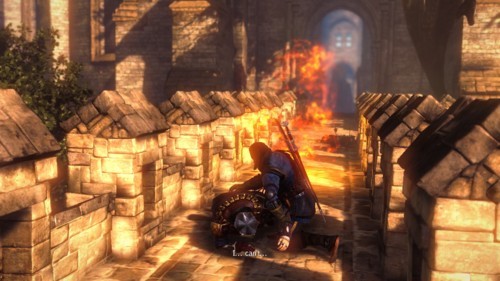
The game does a good job of establishing Geralt, the Witcher, as a character and not the player. In popular games like Mass Effect the game focuses on the character putting himself in Shepherd's shoes. You are not Geralt. Sure, you control him and play the game from his perspective but he is not you. This makes him an interesting character and keeps the player from imposing too many of his/her own assumptions on another character.
This plays out in the entire game -- including dialogue options.
You still make choices that drive the plot. Geralt answers in his gruff, cold voice and tries to appear to be an emotionless monster killer but has many layers as a character, making him just as interesting as any of the other personalities you meet through the experience.
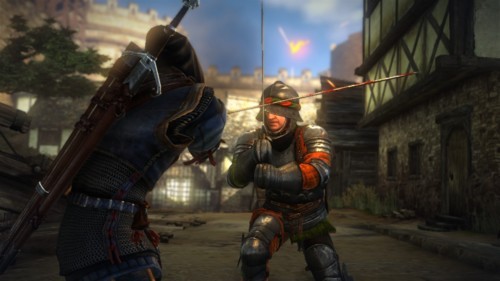
The combat is quick and merciless. Geralt is not bulletproof: fight three armed guards can quickly become a struggle for precious life.
Geralt has quick and heavy attacks that he can use with his iron and silver (monster) sword. He can combine these with his spells and side weapons like throwing knives and bombs. A good example of this would be a gas bomb that releases flammable gas. Geralt can then use his Igni sign and light the gas, burning any nearby enemies.
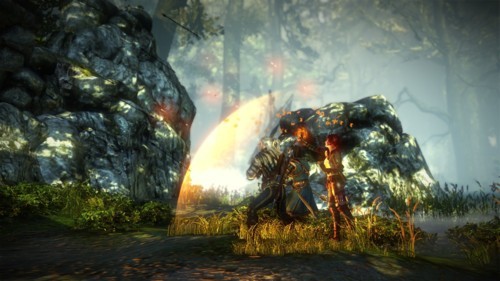
Instead of good or bad choices to make during dialogue CD Projekt RED keeps the entire game within a grey area, fashioning Geralt as the perfect 'Inman' for this journey. Other characters may judge Geralt for his actions but it's up for the player to decide what is the best decision. More often than not all of the "wrong" decisions seem to be the best and for the "right" reasons.
At certain moments in the game dialogue options will be timed. These usually appear during cutscene moments and the player has to make quick decisions that can easily change the tide of the game. The Witcher 2 wants for you to decide based on instinct and necessity instead of cold and calculated thoughts. Characters will die if you can't think fast enough, adding tension to almost every encounter.
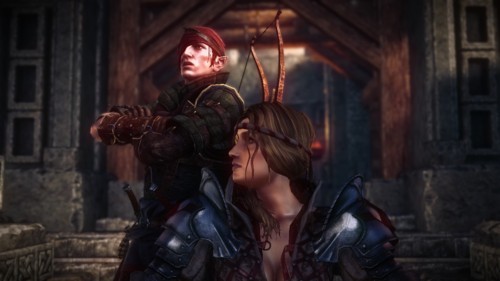
Every character is doing something for his/her own reason. It's difficult to find a character helping you just because they like you. As Geralt you'll have to find some sort of way you can help them in return and build trust before they will open up and be completely honest with you. That or they just aren't honest people.
You'll have to watch out for people that need you or who are just using you as a tool.
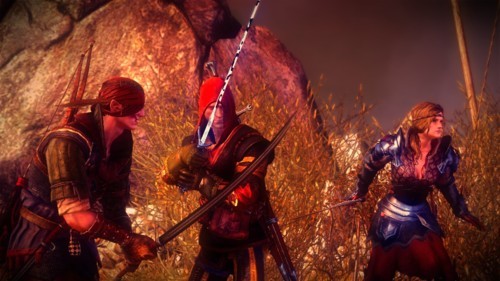
The Witcher 2 is an excellent game that stands solidly on both its mechanics and story. I'll talk more about the latter once I've completed the game.
Just know for now that it's extremely recommended. Just don't go into it expecting it to be easy. You're in for a challenge -- a wonderful, rewarding challenge.
-E
P.S. There are two reasons I made this post: because the game is so friggin' awesome (stated in the post title) and because 3dCube was interested in my opinion of Witcher 2. It'll be a while before I complete it because I've made it my mission to complete every side quest and because of the game structure that isn't something I can do after I finish the main story.
You should check out some of 3dCube's stuff. He's doing 3d modeling and I've gotta say, his work is pretty sweet!
In most modern games there is a moral choice system. Depending on your choice the game may or may not change. You've seen it in Mass Effect, Infamous, etc.
Today I'm going to talk about the way Infamous has taken this seemingly arbitrary system and given deeper choices that the player could be making subconsciously.
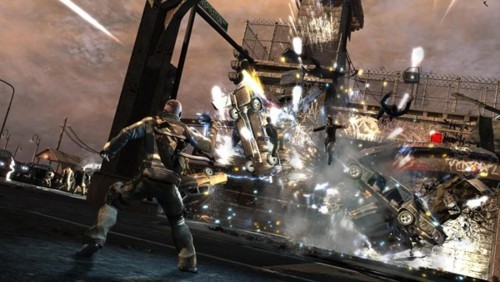
First and foremost, this article is about the first Infamous. Due to the PS3's Welcome Back program, I was able to get my hands on a copy for free.
Throughout the game the player will encounter points where the game will freeze and explain a certain scenario that will affect your morality.
An example of this would be at one point fairly early in the game when you reach a group of riot cops barring the path to the bridge. Cole, the protagonist, is trying to escape the city. The gameplay freezes and pans around the scene as Cole narrates. He tells the player that he could fire electricity at the guards from inside the crowd so that the cops won't be able to find him but warns the player that many innocent civilians would die. He also adds that he could try fighting them from outside the crowd -- but that would be risky.
The main idea I want to focus on is simple: it's easy to be evil.
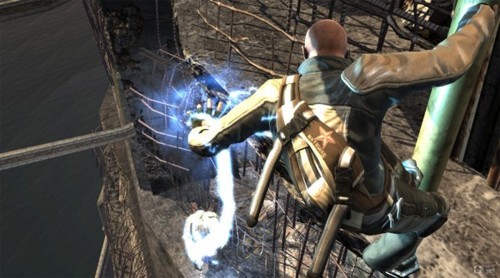
The game seems to go out of its way to tell the player that if he makes all of the easy choices the game will literally become easier.
There's a mission in which Cole has to knock the canisters pumping a black sludge into the city's water supply. You have a choice: you can either shoot the pump off, overloading it with electricity and causing it to chug a large amount into the water before falling off or going up and knocking it off manually, causing the sludge to fly into your eyes. If you take the higher road and decide it would be better for the civilians if you knocked it off manually then the sludge will make Cole hallucinate for a few seconds and you'll lose some of your power for the rest of your mission. Or you could overload the pump and have no direct affects.
PS: The Witcher 2 is the future of choice-based story telling. You can bet I'll make a blog post on that!!!
So, what is Akeldama: The Game of Trust?
A:TGOT is an independently developed game that explores the psychology of the player and the other characters in the game.
The game starts with your awakening within the inside of a mansion. Things soon take a turn for the worse as you realize that the house is filled with a mysterious aura and you reach a terrifying conclusion: the house itself is pure evil.

The objective of the game is to escape. This objective carries from start to finish and is always in the players mind while solving puzzles and fighting monsters. To survive, you must build relationships with the other characters and build a trust with them, or they will decide to follow their own interests instead of the best interest of the group. This also applies to the player.
The overarching story must remain tight-lipped for it to affect the player the way that I want it to so as far as the story goes, I will always have to remain conceptual until the release, which I predict to be sometime next year.
Well, that's all I've got for you today. Keep checking to stay updated.
Any questions?
